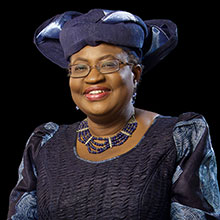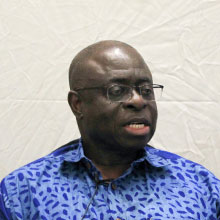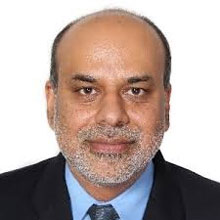TUESDAY SEPTEMBER 29 2020
African Digital Solutions to the Education Challenge of COVID-19 When COVID-19 hit the African continent, some schools had already been closed due to conflict, strikes, or worsening storms and floods. The COVID-19 crisis and subsequent lockdowns have sorely exacerbated the challenge of getting an education.
More information
TUESDAY JULY 28 2020
COVID19 in Africa’s Small Island Developing States: the Experience of Cabo Verde, Mauritius and the Seychelles Bertrand Belle, Economic Advisor to the President of Seychelles, Dr. Giberto Barros, Secretary of State for Finance for Cabo Verde, and Dr. Vasantrao Gujadhur, Director of Public Health for Mauritius, will discuss the impact of COVID-19 (coronavirus) on their island states. The panel will also focus on the policy responses of their governments, and structural reform agendas for “rebuilding better” and recovery.
Watch the replay
TUESDAY JUNE 16, 2020
How Can African Countries Create the Fiscal Space to Address the Covid-19 Induced Economic Crisis? Dr. Ngozi Okonjo-Iweala, Speaker, the African Union’s Special Envoy to Mobilize International Economic Support for Continental Fight Against COVID-19 and former Managing Director of the World Bank
Watch the replay
TUESDAY JUNE 9, 2020
Afrobarometer Survey Results on Covid-19, Service Delivery and Trust in African Governments
Professor E. Gyimah-Boadi, co-founder and chairman of the board of directors (and interim CEO) Afrobarometer
Watch the replay
TUESDAY JUNE 2, 2020
IMF Emergency Assistance to Africa on COVID-19: Finance, Debt-Relief and Policy Reforms
Abebe Selassie, Director of the African Department
Watch the replay
TUESDAY MAY 26, 2020
Food Security Implications of Covid-19 on the World’s Poorest People
Dr. Arif Husain, Chief Economist and Director of Research, Assessment and Monitoring, United Nations World Food Programme
Watch the replay
TUESDAY MAY 19, 2020
No-Regret Policies for the COVID-19 Crisis in Developing Countries
Stefan Dercon, Professor of Economic Policy at the Blavatnik School of Government at the University of Oxford, and former Chief Economist of the UK Department for International Development
Watch the replay
TUESDAY MAY 12, 2020
COVID-19 Impacts and Policy Responses in Emerging Economies: Balancing Lockdowns and Economic Welfare
Kaushik Basu, Professor of Economics and the C. Marks Professor of International Studies at Cornell University
Watch the replay
THURSDAY MAY 7, 2020
Government Policy Responses to COVID-19 and the Private Sector in Africa: Lessons from Ethiopia
Dr. Arkebe Oqubay, Senior Minister and Special Adviser to the Prime Minister of Ethiopia
Watch the replay
TUESDAY MAY 5, 2020
The Role of Africa CDC in Coordinating Public Health Responses to COVID-19 In Africa
Dr. John Nkengasong, Director of Africa Centres for Disease Control and Prevention
Watch the replay









